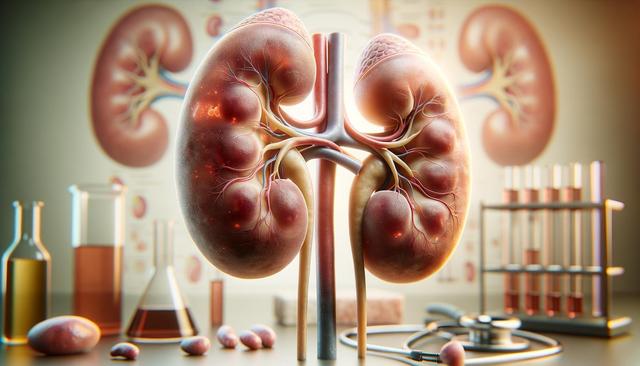Understanding Kidney Disease and Diet
Kidney disease affects how your kidneys filter waste and balance fluids in your body. For individuals living with this condition, diet plays an essential role in managing symptoms and slowing the progression of the disease. The kidneys are responsible for filtering minerals, toxins, and extra fluid from the blood, so what you eat can have a significant impact on their function. It is important to follow a diet that supports kidney health while avoiding foods that could cause harm. Consulting with a healthcare provider or a dietitian can help tailor dietary choices to individual needs based on the stage of kidney disease.
Foods to Avoid
For those with kidney disease, certain foods can put additional strain on the kidneys and should be limited or avoided. High-sodium foods, for example, can lead to increased blood pressure, which can further damage the kidneys. Processed foods, canned soups, and fast food are typically high in sodium. Foods high in phosphorus, such as dairy products, nuts, and colas, can also be problematic as they can build up in the blood. Potassium-rich foods like bananas, oranges, and potatoes should be consumed in moderation, as high potassium levels can be dangerous for those with kidney disease.
Recommended Dietary Choices
While there are foods to avoid, there are also many nutritious and delicious options that can support kidney health. A diet rich in fruits and vegetables, low in saturated fats, and moderate in protein is recommended. Opt for fresh or frozen vegetables to reduce sodium intake. Apples, berries, and red grapes are excellent fruit choices due to their lower potassium levels. Lean proteins, such as skinless poultry, fish, and egg whites, are preferable. Whole grains and low-fat dairy can also be part of a balanced diet, but it is important to monitor phosphorus intake if needed.
Balancing Protein Intake
Protein is essential for overall health, but for individuals with kidney disease, the type and amount of protein consumed is crucial. Too much protein can lead to an accumulation of waste products that the kidneys must filter. It is recommended to incorporate moderate amounts of high-quality protein sources, such as fish, tofu, or eggs, while keeping portion sizes in check. Plant-based proteins can be an excellent option, as they are typically lower in phosphorus and easier on the kidneys. However, it is essential to balance protein intake based on individual health needs and stage of kidney disease.
Hydration and Kidney Health
Staying properly hydrated is vital for kidney function, but managing fluid intake can be a delicate balance for those with kidney disease. While adequate hydration helps the kidneys filter waste, excessive fluid can lead to swelling and blood pressure issues. Monitoring daily fluid intake is essential, particularly for those with advanced kidney disease or on dialysis. Water is the best choice for hydration, but discussing fluid needs with a healthcare provider is important to avoid complications.
Conclusion: Prioritizing Kidney Health Through Diet
For individuals living with kidney disease, understanding and managing dietary choices is a key aspect of maintaining health and quality of life. By avoiding foods that strain the kidneys and focusing on nutrient-rich options, patients can help protect their kidney function and overall well-being. Regular consultations with healthcare providers and dietitians can provide personalized guidance and support. Ultimately, a balanced diet tailored to kidney health can empower individuals to live healthier lives while managing their condition.
